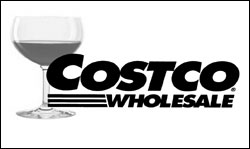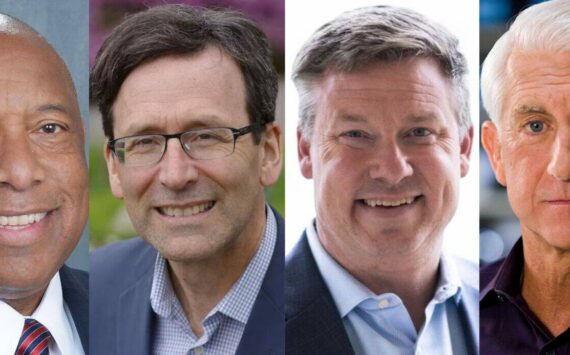WASHINGTON STATE’S rigid system of control over pricing, distribution, and sale of alcoholic beverages has survived nearly 70 years without significant challenge. That challenge finally came just before Labor Day, when attorneys for discount-retailing behemoth Costco, which is headquartered in Issaquah, threatened to take the state to federal court, charging that Washington’s elaborate three-tiered alcohol marketing system violates the venerable Sherman Antitrust Act, and demanding that the state promptly dismantle offending parts of the system or face “expensive litigation.”
When you read Costco’s complaint, you can’t help wondering why it’s taken so long for someone to force the state’s hand. The reason appears to be not that everybody was content with the system, but only because no one was big enough or determined enough to challenge it. As one of the Forbes top 50 American corporations, Costco is big enough and stands to benefit significantly if the law is changed.
It’s only recently that the legal odds tipped in Costco’s favor. For a long time after repeal of Prohibition, courts bent over backward to support the states’ right to regulate alcohol. That began to change in 1980, when the U.S. Supreme Court agreed with some California liquor distributors that there are limits to a state’s right to interfere with business in the name of the 21st Amendment.
THERE’S NO ARGUMENT that Washington’s law interferes with free competition where alcohol is concerned. Alcoholic beverage wholesalers have to post their prices publicly where the competition can see them and are allowed to change prices once a month at most. They’re forbidden to offer discounts for volume buyers, or sell a consignment on credit to sweeten the deal. Out-of-state producers can’t ship their wares directly to retailers but are required to market them through “licensed distributors,” thereby increasing their cost to consumers.
That last requirement appears to be what made Costco decide to challenge the state system, if necessary, in federal court. Costco’s business model is based on buying in massive bulk, directly from producers, and distributing to its “warehouse” stores through its own gigantic and efficient “cross-docking” facilities. That brings down the price to Costco shoppers for items from mayo to mattresses. Costco wants to offer the same price break on wine.
If the state’s requirement that wine must pass through the hands of an independent distributor were set aside, Costco wine customers would benefit. But the change might quickly put a lot of distributors out of business. It’s the mandated markup they earn on high- volume, mass-market beers and wines like those stocked by Costco (and supermarket chains) that makes them profitable. Indeed, owning a beer or wine distributorship in Washington state is considered a license to coin money, one to be jealously kept in the family and handed down through the generations.
Washington’s alcohol distribution system is described as “three-tier,” with producers and consumers as the outside tiers and distributorships at the center, holding the sandwich together. If Costco can persuade the courts that forcing it to buy through distributors is anticompetitive and results in higher prices to the consumer, the rationale for the whole system collapses.
FEDERAL CASE LAW offers the state one fallback position to defend the system: States are permitted to fix prices and control markets only as long as they actively supervise the results of their regulations to ensure that they aren’t abused. But the agency in charge of enforcing Washington’s system, the Liquor Control Board, isn’t set up to do much in the way of supervising the effects of its regulations, and, at least during the reign of Gov. Gary Locke, its governing commission has been less concerned with oversight than providing political sinecures for allies of the governor.
Costco’s letter to the state attorney general points out that under the present system, a number of questionable practices have been allowed to develop over the years, including distributors holding de facto monopolies over some popular products in one region of the state while a competing product is handled by a different distributor in another region. Whether the practice is due to tacit agreements between distributors or not, it obviously limits buyers’ ability to choose between equivalent products on the basis of price: If the wine you want isn’t distributed in your county, you take what you can get, at the price asked.
On Monday, Dec. 1, lawyers for the state and Costco and representatives of the liquor commission met for the first time to explore the legal landscape dividing the parties. Costco’s lawyers seem almost arrogantly sure of their ground. In their letter to the attorney general’s office on Aug. 29, they invited the AG to join with them should litigation become necessary, leaving the liquor commission to hire its own lawyers. If progress isn’t made, litigation could ensue as soon as January.








